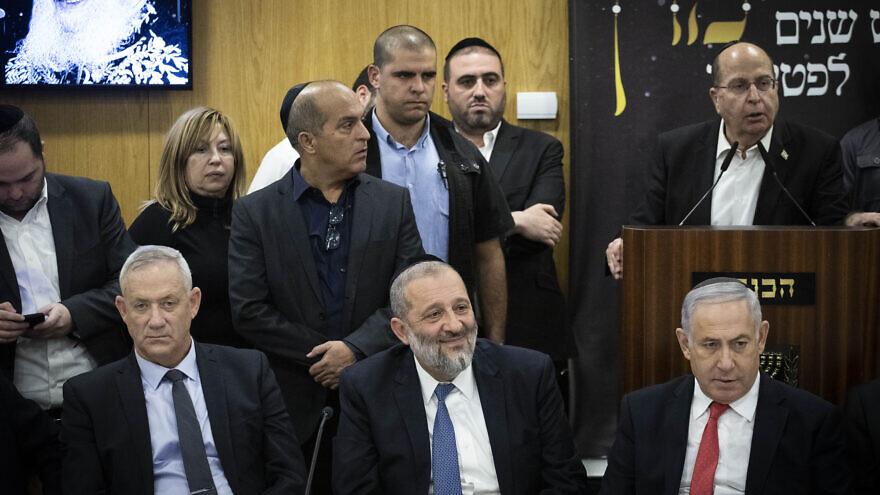Israel’s election impasse doesn’t appear to be waning as the country is closing in on nearly two months since its second national election in September. In the past several days, various reports have emerged and faded over proposals to break the logjam, which have led to more discussion over the possibility of an unprecedented third election in less than a year.
Likud Knesset member Keti Sheetrit, who has been close with Benjamin Netanyahu for years, insists that the prime minister does not want a third election, but that he does want to be remain in the job as part of a unity government.
“Sadly, the ‘Just not Bibi’ campaign has continued beyond the election and into the coalition negotiations,” Sheetrit told JNS.
“The other side is willing to join with the Joint Arab List as long as this will remove Netanyahu from serving as prime minister,” Sheetrit went on, referring to a possible Blue and White-led minority government that is tacitly supported by the Arab parties.
Whether or not Netanyahu is actually looking to a third election, others in the political sphere also seem to want to avoid such a scenario.
‘See if a compromise can be found’
This week, senior members of Israel’s right-wing bloc floated the idea of returning to direct elections for prime minister as a solution to the current impasse. However, Netanyahu quickly dismissed the idea, with his office saying, “Prime Minister Netanyahu is not promoting a law for direct elections; rather, he is working on forming a broad national unity government, the only government that can be established and what the State of Israel needs at this time.”
An additional report this week indicate that Blue and White offered the positions of defense minister and justice minister to New Right’s Naftali Bennett and Ayelet Shaked, respectively, if they would bring their party’s three mandates to a minority government led by Gantz, which would give him an edge in seats over Netanyahu.
Assuming that the Joint Arab List abstains from the vote on the establishment of this government and abstains from all laws put forth by the government, such a plan could pass and could lead the country as a minority government. The very fact that New Right on the far right could sit with Democratic Union on the far left, and vice versa, coupled with the fact that two such high-profile ministries could be offered to a party with just three mandates, indicates just how badly most in the Knesset want to avoid another election.
Netanyahu has apparently taken this report seriously and called the leaders of the parties in his 55-seat right-wing/religious bloc to a meeting on Monday. At that time, Bennett acknowledged that Blue and White made an offer, and that he replied in the negative. Shas chairman Aryeh Deri told the gathering that an offer was made to him as well, and that he, too, rejected it. Not taking any chances, Netanyahu met with Bennett and offered him a ministerial position and a spot in the security cabinet. He did so to reduce the temptation that Bennett may have to accept Gantz’s offer, especially as the country gets closer to a third election, thereby helping to secure Netanyahu’s reign as prime minister until at least when his trial begins and possibly beyond.
Yet Bennett also refused the Netanyahu offer, saying that such an appointment at this time is unnecessary.
Instead, there is work underway to try to woo Yisrael Beiteinu Party leader Avigdor Lieberman into a right-wing coalition.
Jeremy Saltan, director of English Operations for New Right, told JNS that Shaked, the party’s leader, “has been talking to Lieberman and the ultra-Orthodox parties in an effort to see if a compromise can be found that would lead to a right government.”
If Lieberman joins Netanyahu’s 55-seat bloc, it would lead to a 63-seat government and Netanyahu would achieve his goal of remaining as prime minister without the need for a third election.


























